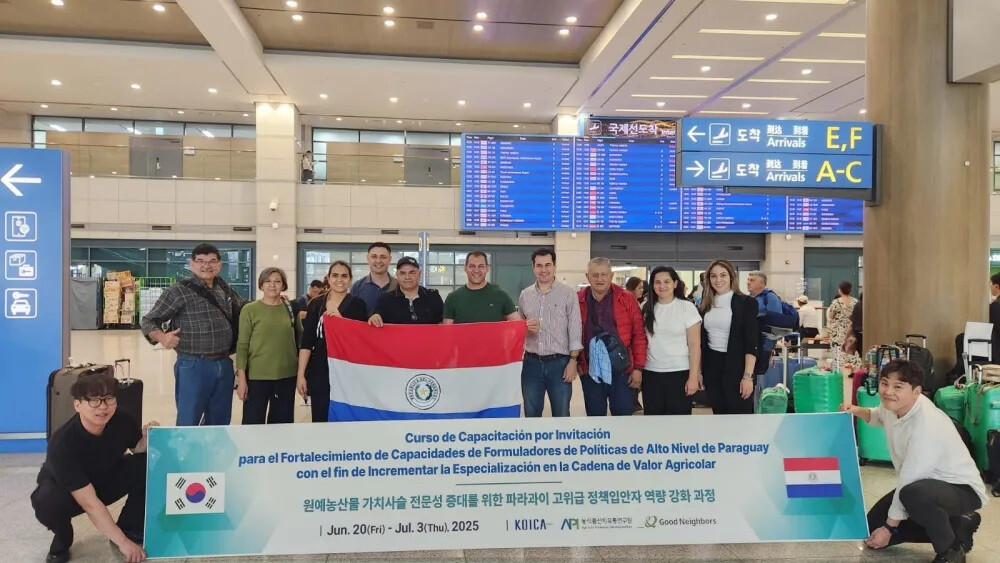
The Ministry of Agriculture and Livestock (MAG) of Paraguay and the Korea International Cooperation Agency (KOICA) have joined forces to transform the landscape of Paraguay's horticultural sector. The Horticom project, with a total investment of $12 million, aims to strengthen Paraguay's horticultural competitiveness by 2028, focusing on transferring Korea's advanced technology and expertise to Paraguay. This project currently directly benefits approximately 2,000 farming households belonging to 17 producer associations across four departments: Central, Paraguarí, Cordillera, and Caaguazú.
Acquiring Advanced Technology Through Training in Korea
Recently, a MAG technical delegation completed an intensive training program in Korea, learning the efficient operational methods of the Korean horticultural system. They visited modern Korean facilities, logistics hubs, and distribution centers, directly experiencing the entire process from sorting and packaging to distribution. In an interview with Radio Nacional, Minister of Agriculture and Livestock Carlos Giménez emphasized, "This project goes beyond mere technical assistance; it helps our producers access markets that generate higher added value through the transfer of technology and equipment." He added, "We want to transform family farming into a true business." The undersecretary of livestock and the head of agricultural extension and commercialization accompanied the delegation on this training, highlighting the project's importance.
Construction of a Modern Collection and Classification Center in Caaguazú
A key element of the Horticom project is the construction of a state-of-the-art collection and classification center in Blás Garay, Caaguazú department. This center will fully adopt Korea's advanced systems, featuring functions such as quality-based sorting, visual inspection, differentiated packaging, and labeling. This is expected to revolutionize the distribution of Paraguay's major horticultural crops, including tomatoes, potatoes, onions, and peppers.
Minister Giménez stated, "Product packaging is extremely important. We want to break the cycle where products are sold cheaply at the farm, and others profit." He further explained, "MAG will support producers in sorting, packaging, and commercializing their products according to the quality standards valued by the market." This model will be expanded nationwide, contributing to reducing distribution steps and increasing the income of small-scale producers by enabling farmer organizations to sell directly to supermarkets and distribution centers.
Capacity Building and Policy Support for Sustainable Development
The Horticom project aims to develop public policies that ensure the project's sustainability even after the current government's term, alongside continuous technical training. To this end, it will focus on strengthening the institutional capacity of participating organizations, helping farmers independently manage and maintain their achievements.
Furthermore, this project is linked to the 'Hambre Cero' (Zero Hunger) program promoted by the Paraguayan government. By enabling fresh produce from family farms to be supplied to the school meal system, it is expected to contribute to improving nutrition and strengthening food security.
Minister Giménez concluded, "I am confident that this project offers a historic opportunity for Paraguay's horticultural industry." He added, "If we solidify these practices, it will not only enhance productivity but also elevate the dignity of thousands of families living in rural areas." The Horticom project is expected to play a crucial role in accelerating the modernization of Paraguay's horticultural industry and improving the quality of life in rural areas.
[Copyright (c) Global Economic Times. All Rights Reserved.]




























